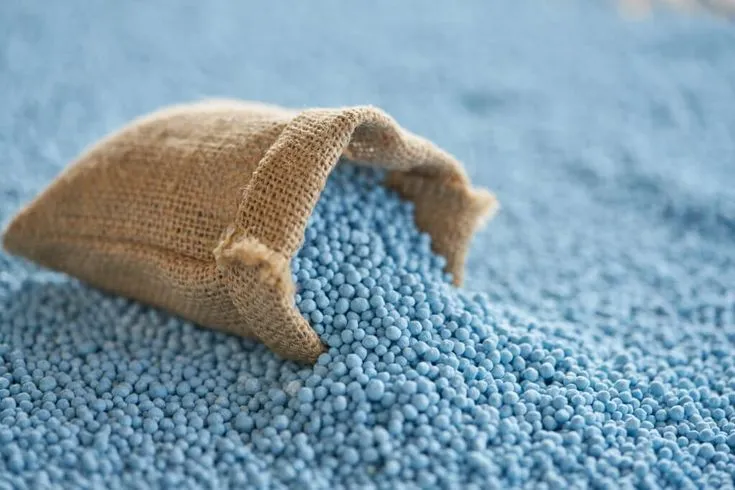Agriculture isn't merely planting crops—it's planting the soil for next season's crop and next year's offspring. But with increased calls for food and less land to use, how do farmers balance lucrative harvests with healthy soil? Enter NPK 20:20:20, a well-balanced fertilizer that's leveled the playing field for sustainable farming. This heavy-hitter provides balanced amounts of nitrogen, phosphorus, and potassium to get your plants off and running while maintaining the long-term health of your soil. Whether you're an old pro at farming, a hobby gardener in your backyard, or simply a fan of sustainable agriculture, NPK 20:20:20 is your passport to farming smarter, not harder. Let's get to the sustainable solution you never knew you needed—and how NPK 20:20:20 will revolutionize your farming game for the long haul.
What Makes NPK 20:20:20 So Special?
Essentially, NPK 20:20:20 is a fertilizer with a perfect trinity:- 20% nitrogen
- 20% phosphorus
- 20% potassium
- Nitrogen fuels leafy development
- Phosphorus builds flowers and roots
- Potassium builds quality fruit and strength
In contrast to heavy chemical fertilizers that drain the soil, NPK 20:20:20 adopts a balanced approach. Sustainably applied, it brings nutrients to the party successfully with less room for excess use and resulting devastation of soil or water pollution. For those concerned about sustainability, NPK 20:20:20 is as good as an old friend—reliable, adaptable, and gentle on the earth.
Why Sustainable Farming Matters Now More Than Ever
Let's discuss why sustainable agriculture is important before we get further into supporting data such as NPK 20:20:20.Imagine this:
- World populations are exploding
- By 2050, we'll have to be feeding almost 10 billion people
- Climate change is serving up curveballs—droughts, floods, and depleted soils
Sustainable farming is producing food without harming the world—
- Healthy soil
- Clean water
- Healthy ecosystems
How NPK 20:20:20 Spins Crops Without Damaging Soil
So how does NPK 20:20:20 manage to get everything balanced so well? It begins with its balanced nutrient ratio. Each of the three gets its share of attention:Nitrogen (20%): Promotes thick, green growth, ideal for leafy vegetables such as spinach or grains when they're germinating.
Phosphorus (20%): Promotes healthy roots and facilitates flowering, which is important for fruits and vegetables such as tomatoes or mangoes.
Potassium (20%): Makes plants more resistant to stress—take drought, pests, or disease—while enhancing fruit quality.
Because NPK 20:20:20 provides these ingredients in proportionate quantities, it prevents the danger of over-fertilizing one element and disrupting soil chemistry. For instance, excessive nitrogen leaves you with plenty of leaves but weak roots—NPK 20:20:20 maintains a balanced condition so crops receive what they require without overstepping the balance.
Plus, NPK 20:20:20 is versatile. Whether you’re spreading it on wheat fields, mixing it into potato beds, or using it in drip irrigation for orchards, it adapts to your crops’ needs. This flexibility means less waste, as you’re not applying nutrients plants can’t use. Less wasted equals less runoff into rivers and streams—a win for sustainability.
Pairing NPK 20:20:20 with Organic Practices for Extra Impact
Want NPK 20:20:20 to travel further? Use it along with natural farming practices, such as those promoted by companies such as Humic Factory. Mixing NPK 20:20:20 with humic acid or biofertilizers is similar to your soil receiving an additional superpower.Humic acid, for example, is a sponge-like substance that draws the nutrient value of NPK 20:20:20 so that plants gradually absorb it.
This avoids leaching—whereby nutrients are washed into groundwater—and makes your soil fertile for a longer period of time.
The Eco-Friendly Benefit of NPK 20:20:20
Beyond the farm, NPK 20:20:20 also has a greener benefit. Here's how it makes the world a better place:- Less Runoff: Due to its balanced mix, fewer surplus nutrients overflow into water bodies and protect aquatic ecosystems.
- Less Carbon Footprint: The use of a single fertilizer like NPK 20:20:20 on different crops has less transportation and packaging than buying different mixes.
- Conservation of Soil: Not causing nutrient imbalance, NPK 20:20:20 keeps bacteria and organic soil compounds intact, keeping carbon in place naturally.
- Long-Term Fertility: Crops treated with NPK 20:20:20 are fertile and less input is required to plant new land.
NPK 20:20:20 for Farmers of All Hues
Whatever your farming method, NPK 20:20:20 is a natural choice:- Small Farmers: Easy and inexpensive, NPK 20:20:20 gets more out of the budget and boosts yields.
- Organic Activists: Pair it with biofertilizers for a half-organic approach that's still eco-friendly.
- Large Growers: NPK 20:20:20's convenience makes working with a wide variety of crops a breeze.
- Home Gardeners: A small package of NPK 20:20:20 maintains your flowers and vegetables in top condition without the headache.
Last Thoughts: Is NPK 20:20:20 Your Eco-Friendly Option?
In an age of harvest now or soil later, NPK 20:20:20 is the best of both. It's not fertilizer; it's a promise of getting wiser, greener, and stronger.With its extremely balanced fertilizers, multi-functionality, and soil suitability, NPK 20:20:20 checks all the right boxes when it comes to environmentally friendly farming:
- High yields
- Healthy soil
- Eco-friendly
- Affordable
- Easy to use
FAQs





